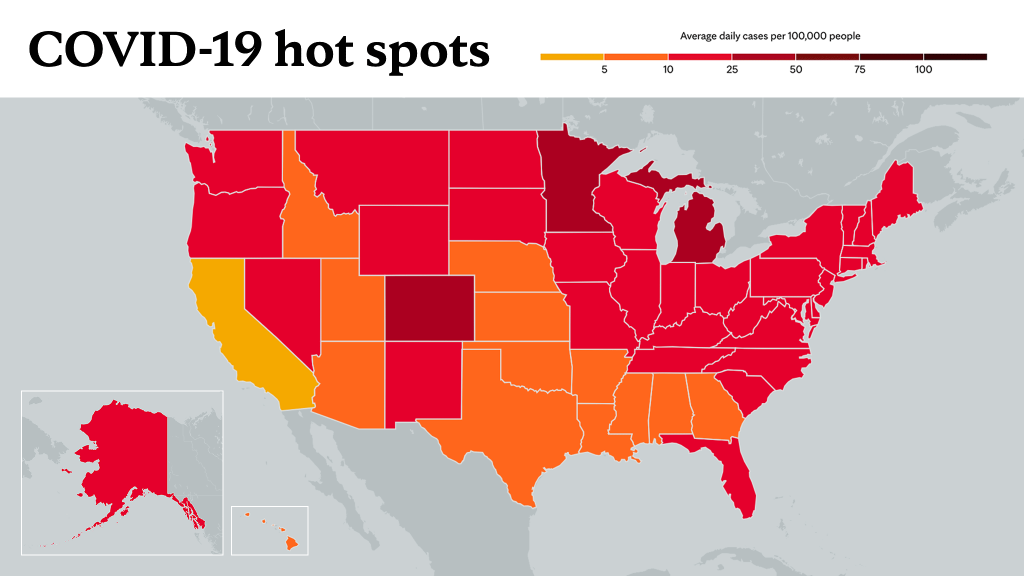
Throughout the COVID-19 pandemic, health care providers have been concerned about a growing number of patients delaying or skipping preventive screenings because they have been hesitant to see their health care provider. Experts have stressed that it's not only safe to come in for preventive screenings, but also it's important to avoid future health problems or catch them early when they are easier to treat.
That's particularly true when it comes to cancer. No one knows that better than Andrea Beckendorf, a musician and professor from Iowa whose decision not to delay her breast cancer screening led to an early diagnosis of treatable breast cancer.
Watch: How screening led to early diagnosis of treatable breast cancer.
Journalists: Broadcast-quality video patient pkg (2:44) is in the downloads at the end of the post. Please courtesy: "Mayo Clinic News Network." Read the script.
"The bass is sort of the foundation of the orchestra," explains Andrea Beckendorf. "It provides in a lot of cases the harmonic support for the entire ensemble, especially for the string section."
Much like the role the bass plays in an orchestra, one could say regular health screenings provide a foundational role in a person's lifelong health and well-being.
"I talked with my primary care physician back in September. Part of my thinking was: 'Well, it is COVID. Should I do this? Should I not do this,'" says Andrea.
At 49 years old with no known risk factors for breast cancer, she decided to schedule a regular mammogram during a global pandemic ― a decision that may have saved her life.
"They saw an area where they wanted me to come back and take another look. And they took a biopsy, and the biopsy revealed that it was cancerous."
Because of the cancer's small size, location and the density of her breast tissue, Andrea's doctors told her there's no way she would have found it on her own with a regular self-exam.
"She had stage 1 breast cancer," says Dr. Daniela Stan, a physician in Mayo Clinic's Breast Diagnostic Clinic.
After getting a biopsy at her local clinic in Iowa, Andrea came to Mayo Clinic and started a care plan with Dr. Stan.
"Getting mammograms early to discover these cancers ― when they are small ― is important because the treatments are shorter and not as invasive," says Dr. Stan.
Because the cancer was caught early, Dr. Stan says the prognosis is good, and Andrea's treatment was very straightforward. In January, she had a lumpectomy.
"She was fortunate as well to have normal lymph nodes, so that makes it a stage 1. She received a very brief course of radiation based on the tumor size. Usually, if the tumor is less than 2 centimeters, we can do partial breast radiation," says Dr. Stan.
Partial breast radiation means Andrea only needs five days of radiation versus 15 days. She also won't need chemotherapy.
Because of the quick diagnosis and straightforward treatment, Andrea has been able to get back to her music much faster.
"It's given me something to look forward to. I've gone through the treatments to be able to play with my students, and be able to practice and perform again," says Andrea. "My message would be for folks to have a conversation with their primary care physician and talk with their family if they need to about the importance of getting screened, and then to encourage people to please get screened."
Dr. Stan says Mayo Clinic follows the American Cancer Society's criteria for breast cancer screening recommendations. These criteria encourage people to start having discussions with their primary care provider between ages 40 and 50 about the risks and benefits of screening, and consider yearly mammograms.
____________________________________________
For the safety of its patients, staff and visitors, Mayo Clinic has strict masking policies in place. Anyone shown without a mask in the video was recorded prior to COVID-19 or recorded in an area not designated for patient care, where social distancing and other safety protocols were followed.
For more information and all your COVID-19 coverage, go to the Mayo Clinic News Network and mayoclinic.org.
Learn more about: tracking COVID-19 and COVID-19 trends.








